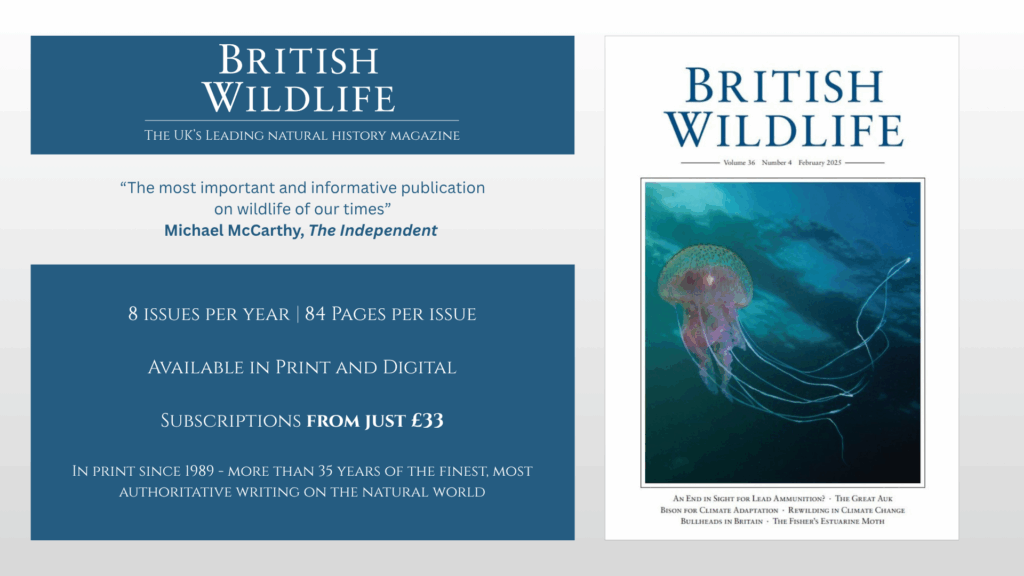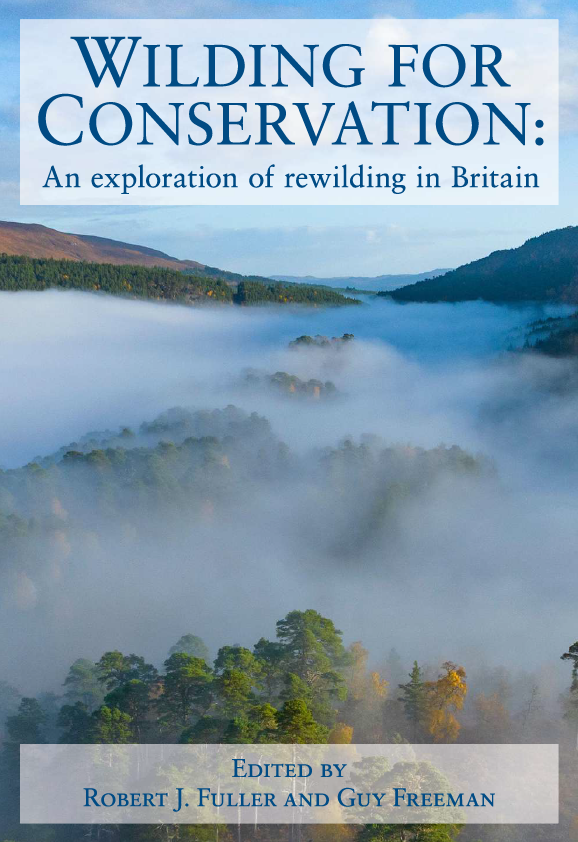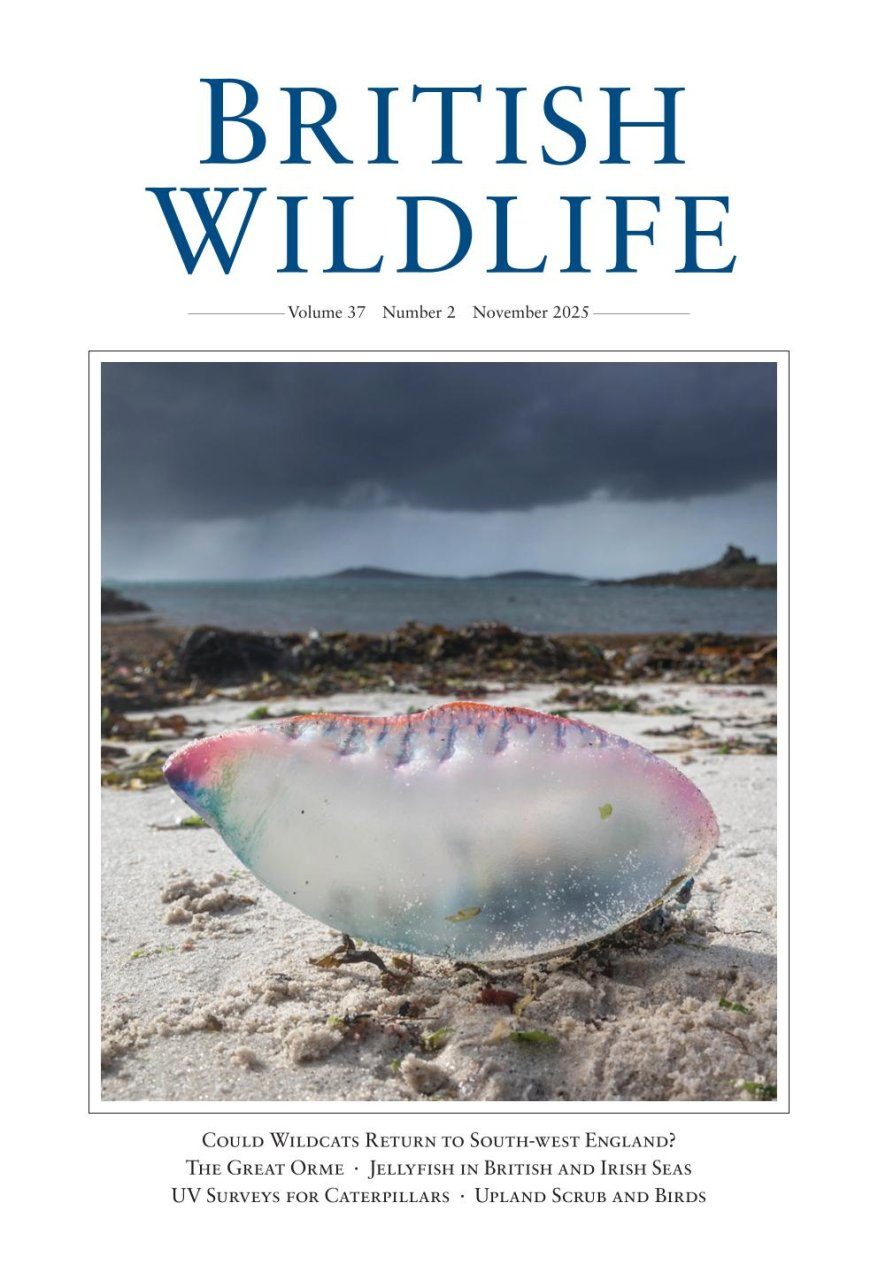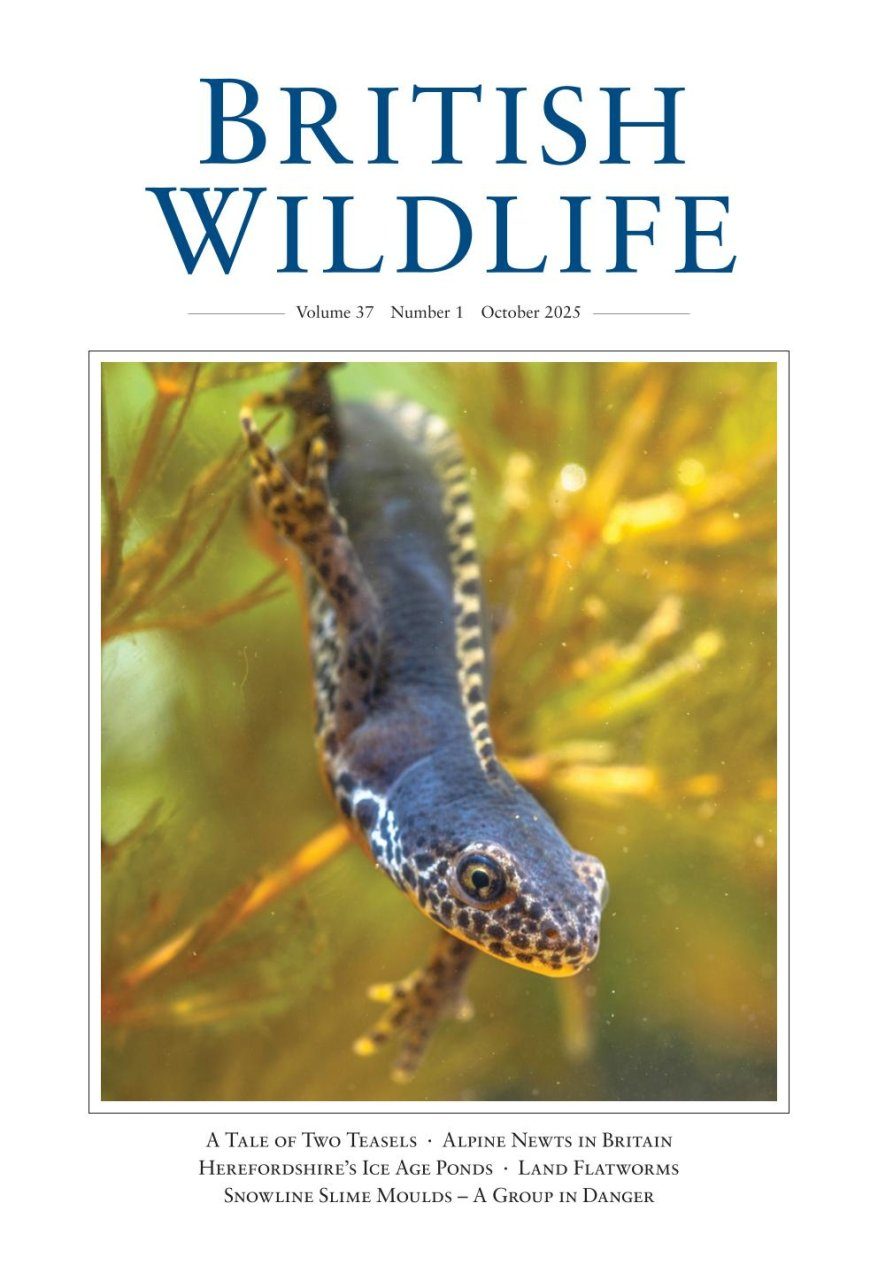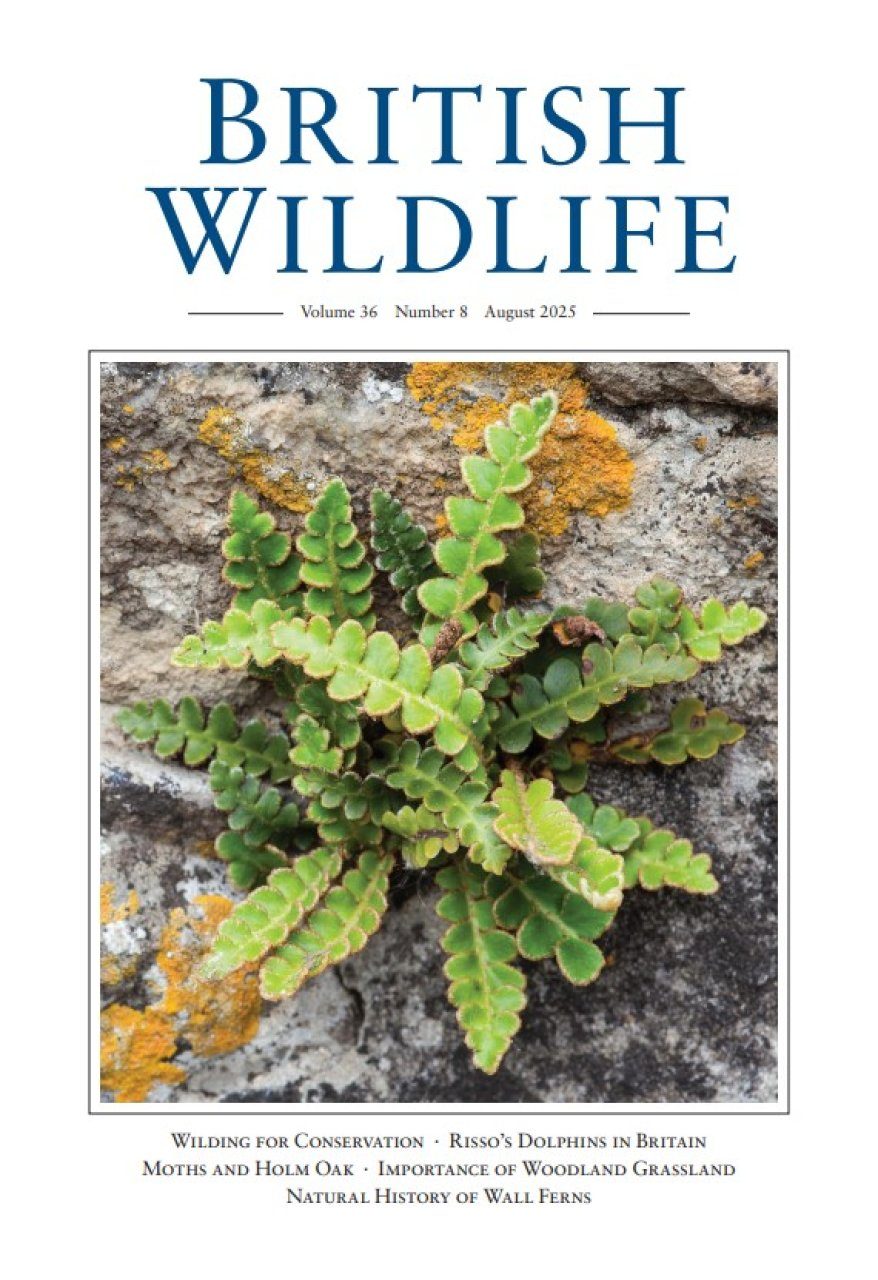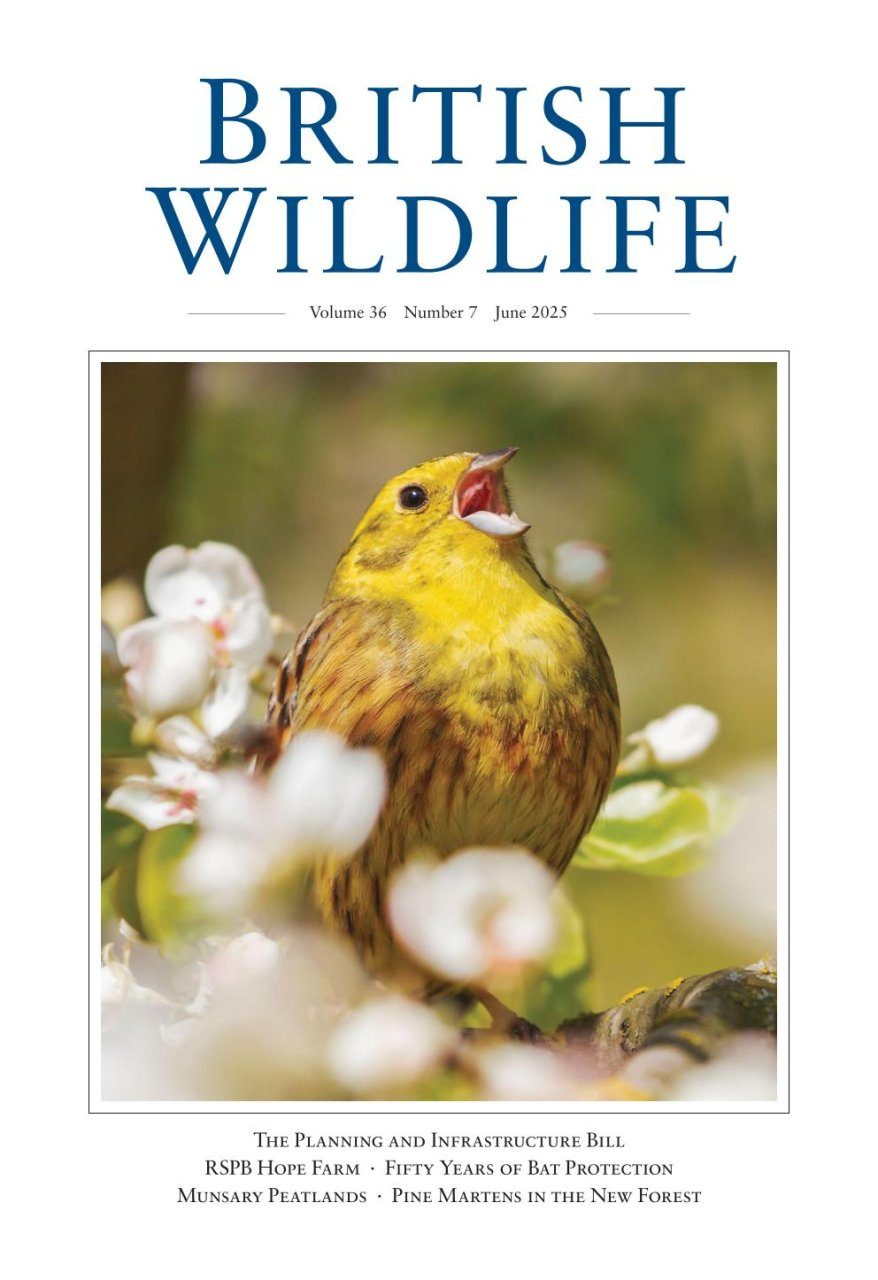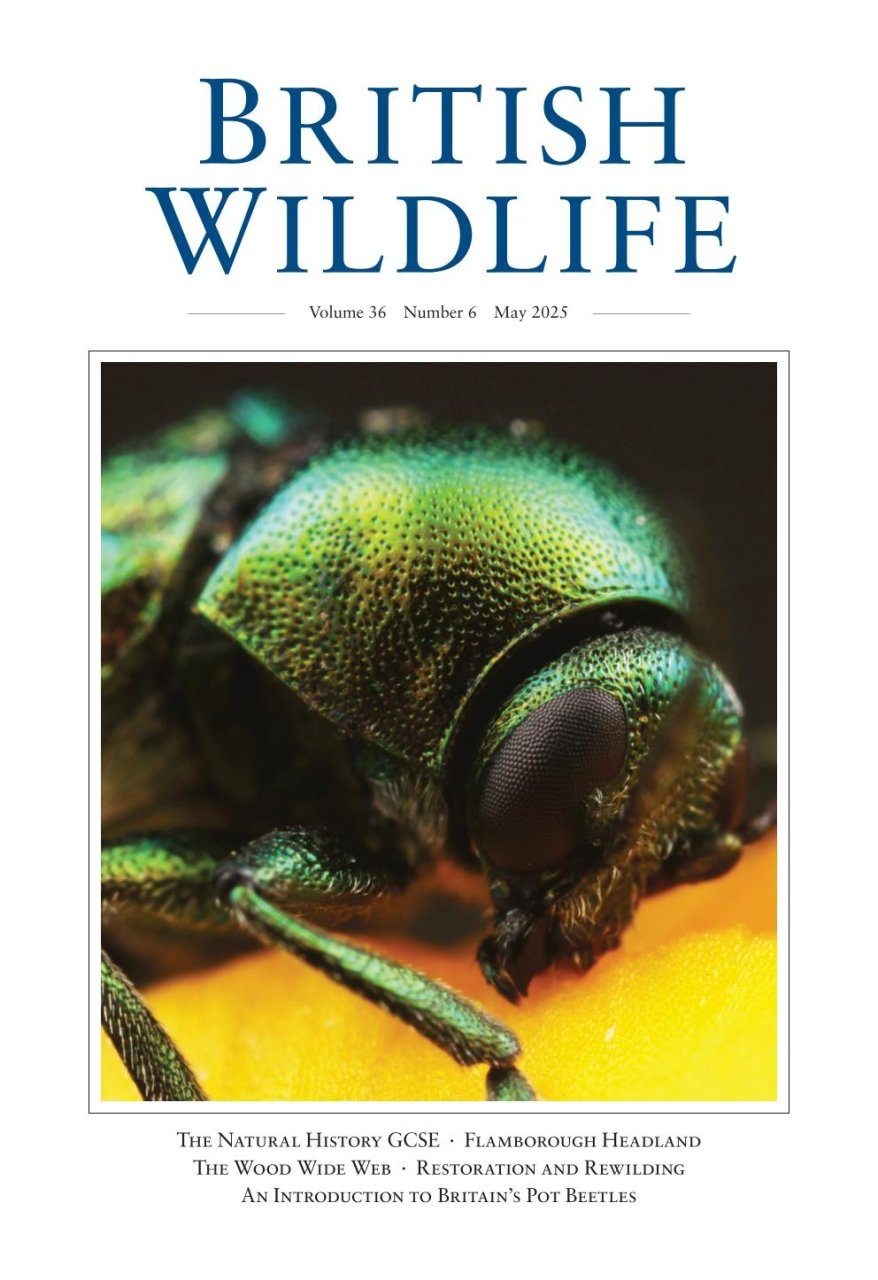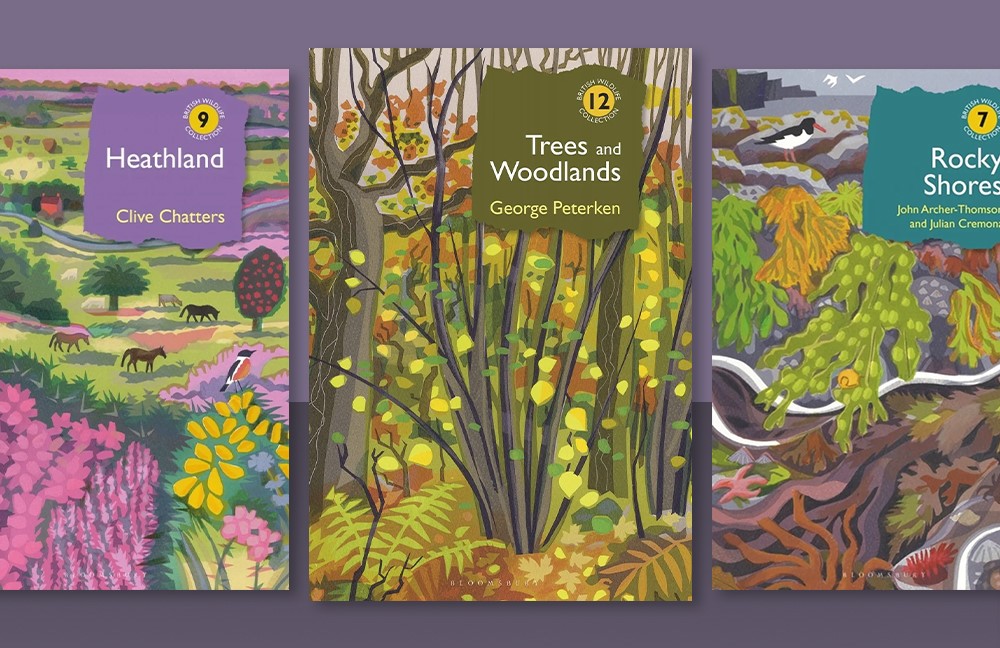NOW AVAILABLE!
Wilding for Conservation: An Exploration of Rewilding in Britain
The complete collection of articles from British Wildlife‘s acclaimed Wilding for Conservation series
Available to download for just £16.99
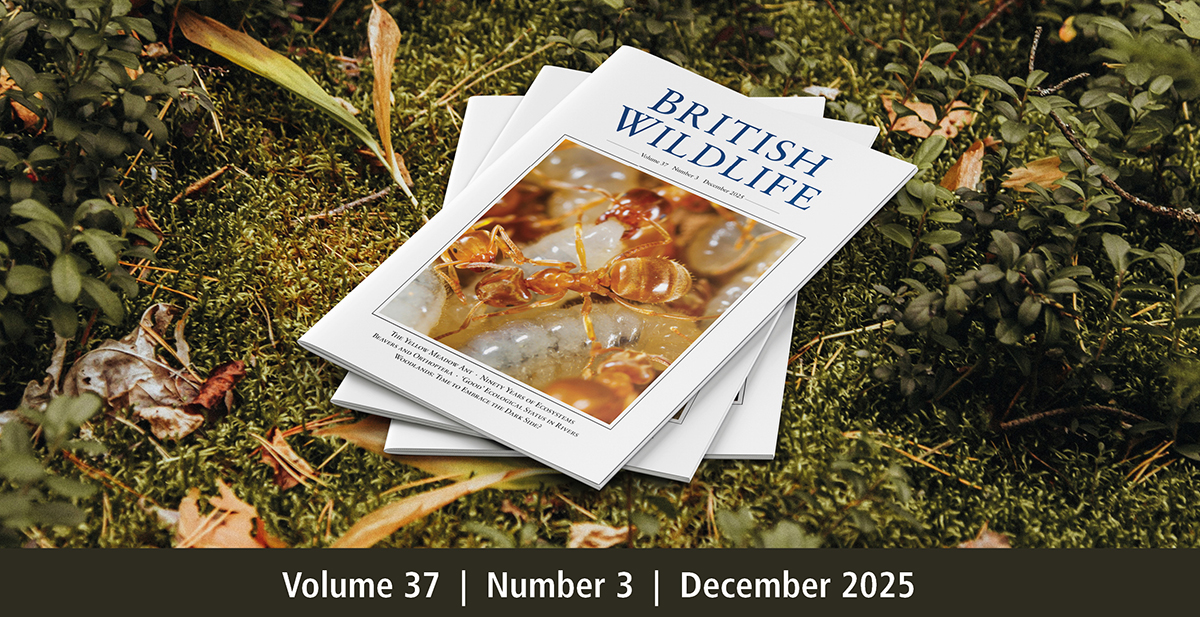
In this issue
The Yellow Meadow Ant – Ninety Years of Ecosystems – Beavers and Orthoptera – ‘Good’ Ecological Status in Rivers – Woodlands: Time to Embrace the Dark Side?
Contents:
- 157 The Yellow Meadow Ant: a small animal with a huge influence
- 164 Natural Reflections
- 165 Ninety years of ecosystems
- 171 Habitat Management News
- 173 Beaver habitat creation and benefits for Orthoptera
- 182 Wild Story
- 183 Good Ecological Status? The disturbing case of the Middle Severn
- 190 Letter from Caledonia
- 191 Woodlands: time to embrace the dark side?
- 202 How to be wild
- 203 Wildlife Reports
- 226 Conservation news
- 232 Changing Perspectives
- 234 Book review: Exmoor
Articles in this issue

Woodlands: time to embrace the dark side?
The UK’s woodland cover is less than half the average for Europe (Burton et al. 2018) and we have no true primary forests, defined as ‘a naturally regenerated forest of native species, where there are no clearly visible indications of human activities and the ecological processes are not significantly disturbed’ (FAO 2015). Our remnant sylvanSee moreColumns in this issue
Featuresin this issue

Book review: Exmoor
Exmoor was one of the first National Parks to be declared, and is also one of the smallest at c. 69,000ha (the Lake District is 236,000ha). Exmoor’s northern boundary is defined by its vertiginous wooded cliffs along the Bristol Channel. Inland it stretches southwards, mostly through Somerset and a corner of Devon, and includes one

Conservation news
Conservation news reports on all the biggest recent news from conservation and environmental policy, including the outcome of COP 30, the Scottish government’s draft climate change plan and plastic pollution in SSSIs.
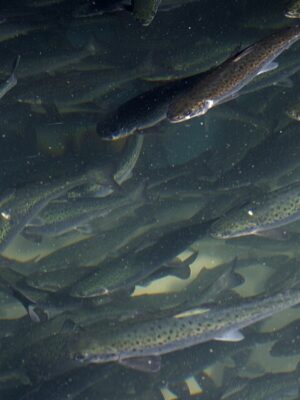
Wildlife Reports
December’s wildlife reports cover a long overdue change of scientific name for the Bullhead Cottus perifretum and a rediscovery of a ‘nationally rare’ spider, and the usual round-ups on a variety of other taxonomic groups.
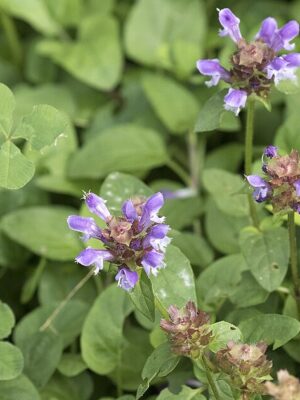
Habitat Management News
December’s habitat management news concerns mowing regimes for pollinators in urban lawns and the use of deer-repellent spray to reduce browsing damage.
You might also like

Receive all of the latest news and updates
Join the British Wildlife mailing list today.

